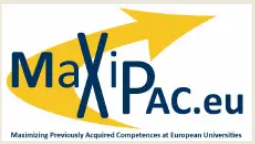The Italian higher education system
The Italian higher education system is made up by different institutions spread across the board:
- State Universities and non-state (private) institutions;
- Institutes of Higher education for the fine arts, music and dance (literally, Alta formazione artistica, musicale e coreutica – Afam)
- Higher technical institutes (literally, Istituti tecnici superiori – ITS).
More specifically, the state universities are 67. The non-state institutions formally recognized by the Minister of University and Research are, instead, 19.
Currently there are also 11 telematic private universities.
According to the Bologna framework, universities and Afam institutes offer programmes at the first, second and third cycle:
- The first-cycle qualification (Bachelor), correspondig to the Laurea, is issued at the end of a three- year study programme (180 ECTS credits);
- The second-cycle qualification (Master) is issued at the end of a two-year study programme (120 ECTS credits) or to a 5-6-year single study programme (laurea magistrale a ciclo unico, 300-360 ECTS credits) corresponds to the Laurea magistrale.
- The third-cycle qualification (Doctoral), finally, is issued at the end of a minimum three-year study programme and corresponds to the Dottorato di ricerca (PhD).
Furthermore, universities organise courses leading to other educational qualifications; however, these qualifications are not aligned with the Bologna structure:
- First-level university Master (master universitario di primo livello); courses are addressed to holders of a laurea and lead to a second-cycle qualification.
- Specialisation Diploma (diploma di specializzazione) and Second-level university Master (master universitario di secondo livello); courses are addressed to holders of a laurea magistrale and lead to a third-cycle qualification.
Within the Italian Qualification Framework for the Higher Education, aligned with the rationale of the Bologna Process (and the Dublin descriptors), the first cycle qualifications are awarded to students which:
- have demonstrated knowledge and understanding in a field of study that builds upon their general secondary education, and is typically at a level that, whilst supported by advanced textbooks, includes some aspects that will be informed by knowledge of the forefront of their field of study;
- can apply their knowledge and understanding in a manner that indicates a professional approach to their work or vocation, and have competences typically demonstrated through devising and sustaining arguments and solving problems within their field of study;
- have the ability to gather and interpret relevant data (usually within their field of study) to inform judgments that include reflection on relevant social, scientific or ethical issues;
- can communicate information, ideas, problems and solutions to both specialist and non-specialist audiences;
- have developed those learning skills that are necessary for them to continue to undertake further study with a high degree of autonomy.
Students reach the second cycle qualifications when they:
- have demonstrated knowledge and understanding that is founded upon and extends and/or enhances that typically associated with the first cycle, and that provides a basis or opportunity for originality in developing and/or applying ideas, often within a research context;
- can apply their knowledge and understanding, and problem-solving abilities in new or unfamiliar environments within broader (or multidisciplinary) contexts related to their field of study;
- have the ability to integrate knowledge and handle complexity, and formulate judgments with incomplete or limited information, but that include reflecting on social and ethical responsibilities linked to the application of their knowledge and judgments;
- can communicate their conclusions, and the knowledge and rationale underpinning these, to specialist and non-specialist audiences clearly and unambiguously;
- have the learning skills to allow them to continue to study in a manner that may be largely self-directed or autonomous.
The third cycle qualifications are awarded to students who
- have demonstrated a systematic understanding of a field of study and mastery of the skills and methods of research associated with that field;
- have demonstrated the ability to conceive, design, implement and adapt a substantial process of research with scholarly integrity;
- have made a contribution through original research that extends the frontier of knowledge by developing a substantial body of work, some of which merits national or international refereed publication;
- are capable of critical analysis, evaluation and synthesis of new and complex ideas;
- can communicate with their peers, the larger scholarly community and with society in general about their areas of expertise;
- can be expected to be able to promote, within academic and professional contexts, technological, social or cultural advancement in a knowledge-based society.
Admission requirements according to the three cycle programs
- The entry requirement to Italian higher education includes the upper secondary school diploma or an equivalent qualification completed abroad. In addition, for some degree courses universities may require some initial preparation and may conduct tests to assess applicants’ knowledge. Only in few cases these tests are used to select candidates (e.g., Medicine or Teacher Education). In the other cases, the test results do not disqualify candidates from entering higher education but determine additional specific training requirements to be fulfilled in the first year of higher education.
- Admission to Master programmes requires a relevant Bachelor degree.
- Access to third-cycle programmes requires passing a public competition. Access to this exam requires a second cycle qualification or equivalent qualification obtained abroad.
- Language requirement of B2 in Italian, or a comparable level, for third countries national students is set either on the national level or by the institutions.
